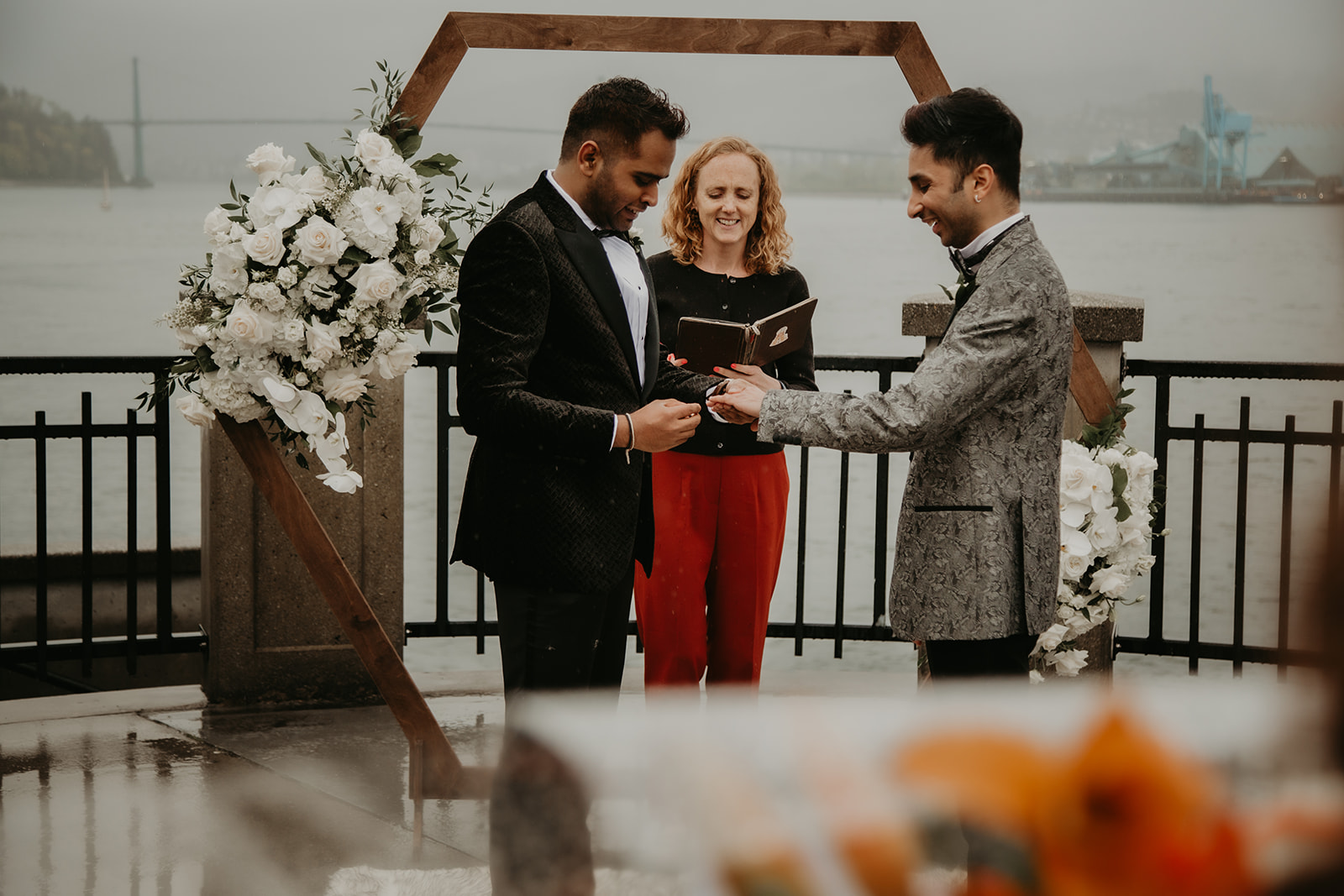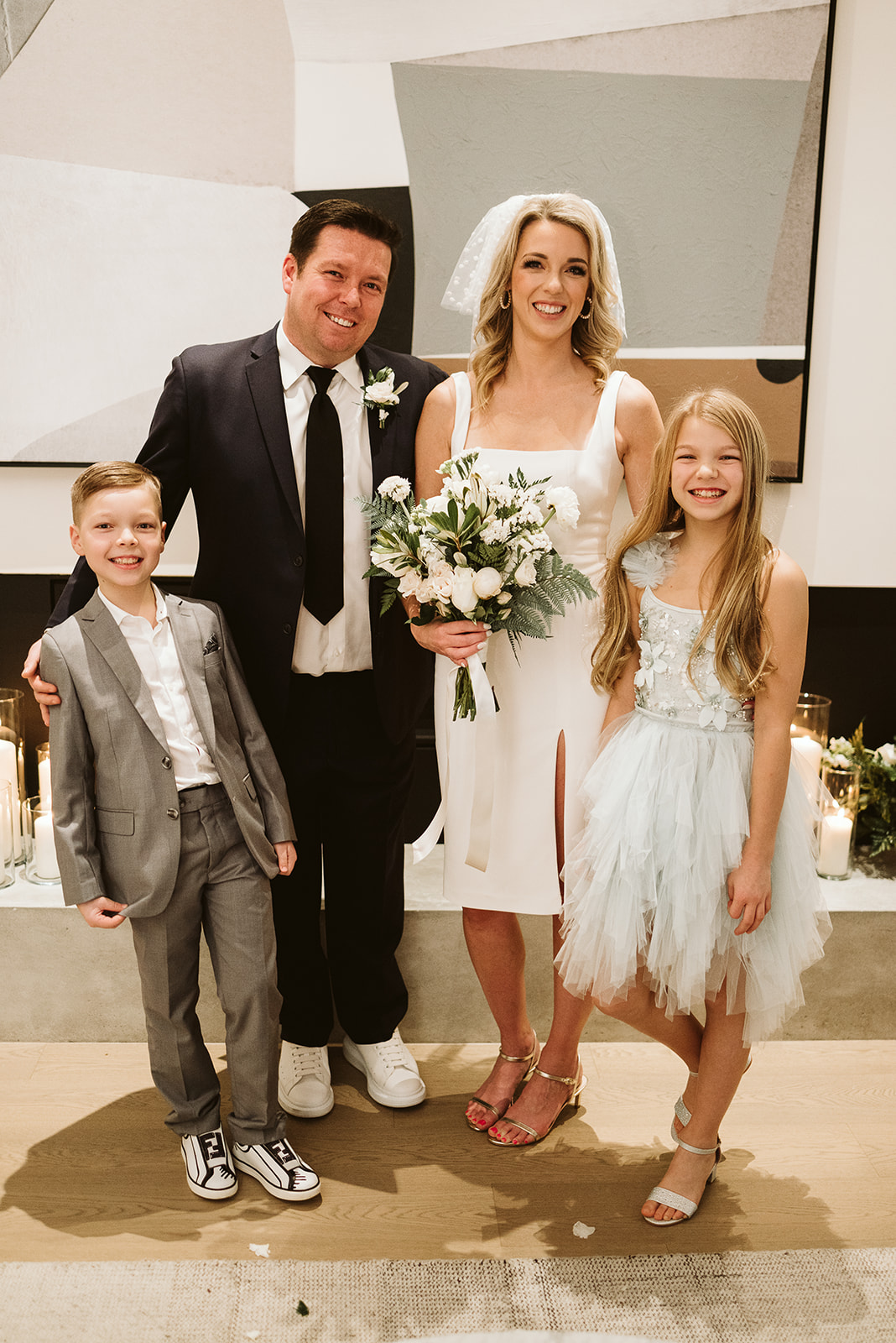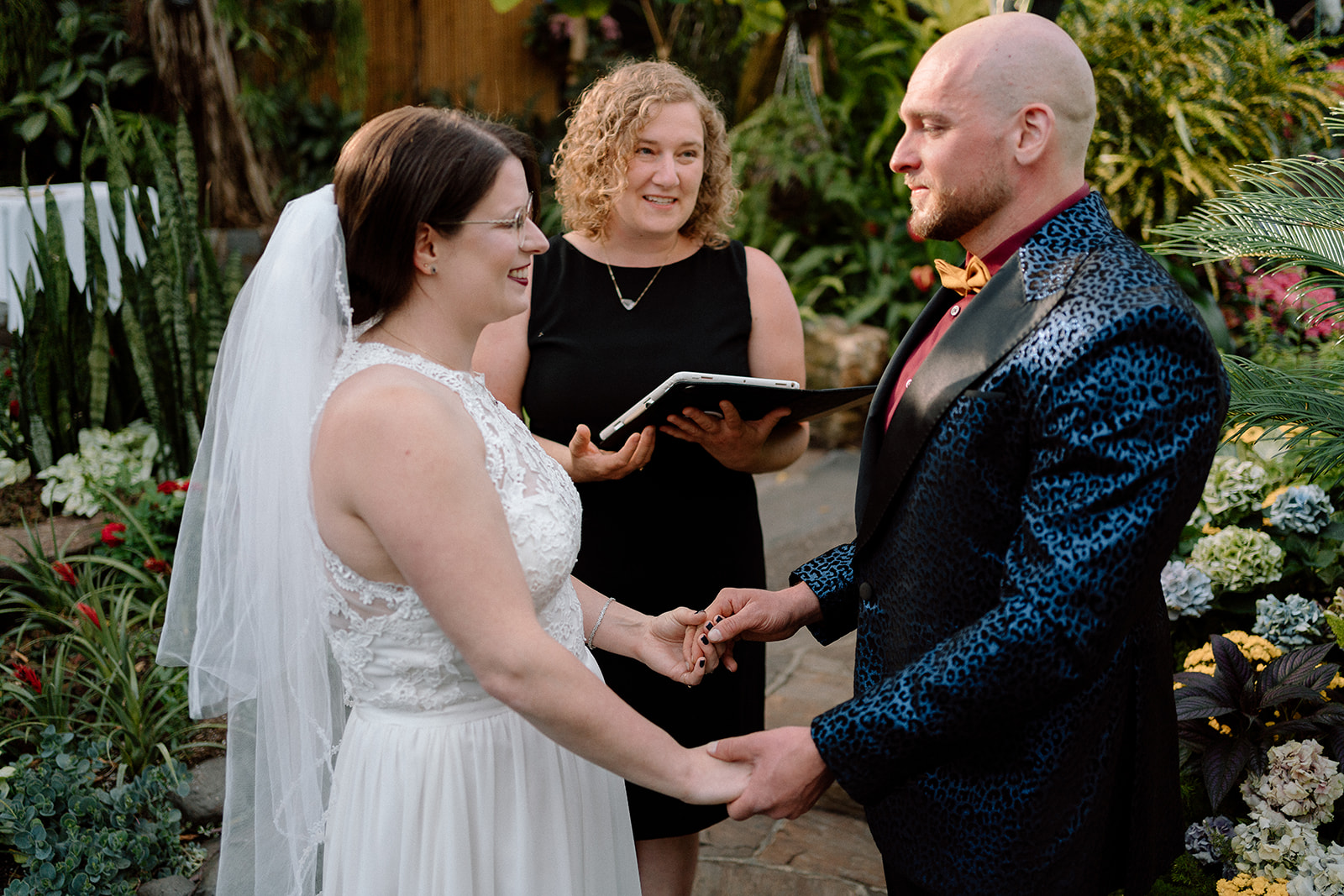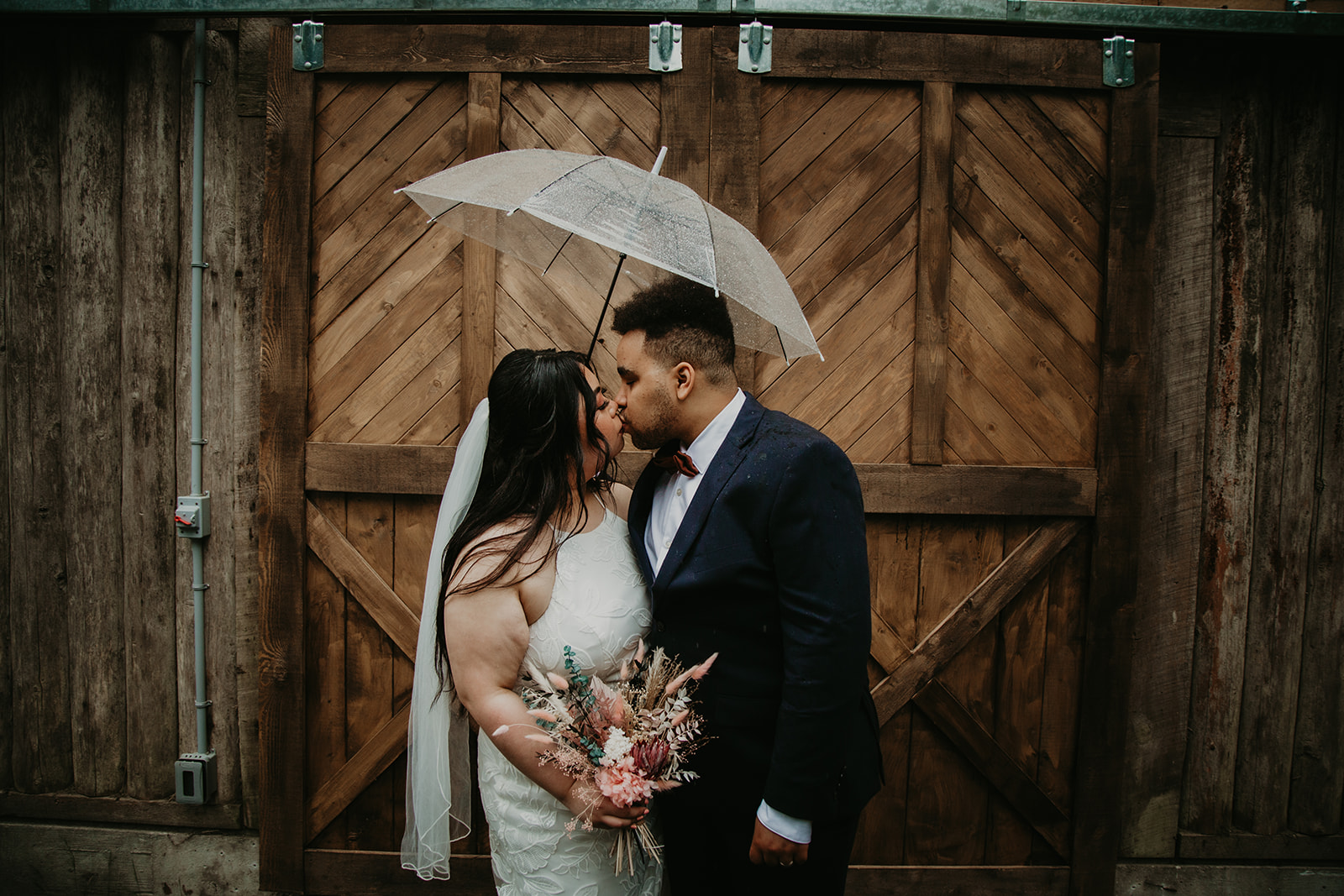Love knows no boundaries, and neither should the celebration of your love! In a world where no one wants to do extra paperwork, a commitment ceremony provides a meaningful alternative for couples to express their dedication to each other.
Whether it’s a vow renewal, a destination wedding, or a symbolic union for LGBTQ+ couples, commitment ceremonies offer an opportunity to honour love without the constraints of legal paperwork. Keep reading to discover what commitment ceremonies are, how they differ from legal weddings, and why hiring a wedding officiant can make your commitment ceremony that much more meaningful!
What is a commitment ceremony?
A commitment ceremony is any type of event or ritual that celebrates a couple coming together and dedicating themselves to one another. This could be an informal moment, such as a couple reading love letters to each other in their living room, or a more planned and formal event, such as a wedding ceremony.
Generally speaking, commitment ceremonies are non-legal, meaning that no legal paperwork is signed. The emphasis is on the emotional or spiritual commitment, rather than on the legal changing of marital status.

Examples of commitment ceremonies:
A vow renewal is a type of commitment, or recommitment, ceremony. With a vow renewal, a couple that is already married plans an event to recommit to one another and share new, updated vows that reflect on their years of marriage. Because they are already legally married, no legal paperwork is needed at their vow renewal.
Many destination weddings are actually commitment ceremonies, rather than legal ceremonies. That’s because many couples find it easier to get legally married at home before or after their destination wedding, rather than have to deal with paperwork abroad to legalize their marriage.
Sadly, in places of the world where LGBTQ+ couples cannot be legally or safely married, many choose to hold symbolic commitment ceremonies instead. While they can’t sign any paperwork, they can still honour their commitment and celebrate with friends and family. Finding LGBTQ+ friendly wedding vendors can be difficult in these areas, proving once again how much harder queer couples have to work just to have their love acknowledged and respected.
You may have also heard of commitment ceremonies happening with blended families. Regardless of whether or not the parents are legally married, some blended families will choose to have commitment ceremonies with their children, involving them in the ritual of forming a new family. Commitment ceremonies are also popular in certain spiritual and religious groups where the legal importance of marriage is not as heavily emphasized.

How is a commitment ceremony different from a legal wedding ceremony?
The biggest difference between a commitment wedding ceremony and a legal wedding ceremony is the paperwork. At a legal ceremony, a marriage licence is signed and filed, registering the marriage with the governing body in your area and legally changing a couple’s marital status. With a commitment ceremony, no legal paperwork is signed or filed and no legal statuses change as a result of the ceremony.
Otherwise, these two ceremonies can be identical! You can still put on your fanciest wedding outfits, have wedding parties, exchange vows and rings, share a first kiss and celebrate with your guests. You can have a wedding officiant conduct the ceremony and even sign a document of your own making, such as the promises you want to keep to one another.
Importantly, a commitment ceremony is not a fake wedding. Just because a couple is not legally registering their marriage during the ceremony, it doesn’t mean their relationship and commitment to one another is any less strong or important. Nor does it mean they shouldn’t get to celebrate their commitment like everyone else! Since when does a government stamped piece of paper prove that your love is real?

Why would you want to have a non-legal ceremony?
There are many reasons why a non-legal ceremony may make more sense for you than a legal one. As mentioned above, you may choose a non-legal ceremony to renew your vows, since you’re already legally married. If you’re getting legally married before or after a destination wedding, your ceremony in the destination would be non-legal.
If you can’t get legally married to the person you love, a non-legal commitment ceremony may be your only choice. There are also situations where getting married may impact your ability to get health insurance, apply for certain jobs or make use of certain benefits.
Of course, you may just feel like a commitment ceremony is the right choice for you two and a better fit than a legal ceremony. Perhaps the legal part of marriage is not important or appealing to you. That’s okay! You can still be completely committed to your partner without official paperwork and you can still plan a meaningful commitment ceremony without signing anything.

Should you hire a wedding officiant for your commitment ceremony?
If you’re planning a commitment ceremony with vows, guests and rings, a wedding officiant could be a great touch. (Though, of course, we’re a little biased!) While a wedding officiant is important for signing and filing the legal paperwork, they do so much more for your wedding ceremony.
An officiant can help you customize and design a commitment ceremony that tells your story and shares your love with your guests. They can offer advice on vows and readings, run your ceremony rehearsal, and answer any questions you have along the way. Importantly, on the big day they bring a sense of calm and professionalism to your ceremony. You’ll know that you have an experienced, reliable vendor with you who can guide you through the ceremony.
Get in touch to learn about how we can help you plan the perfect commitment ceremony!
